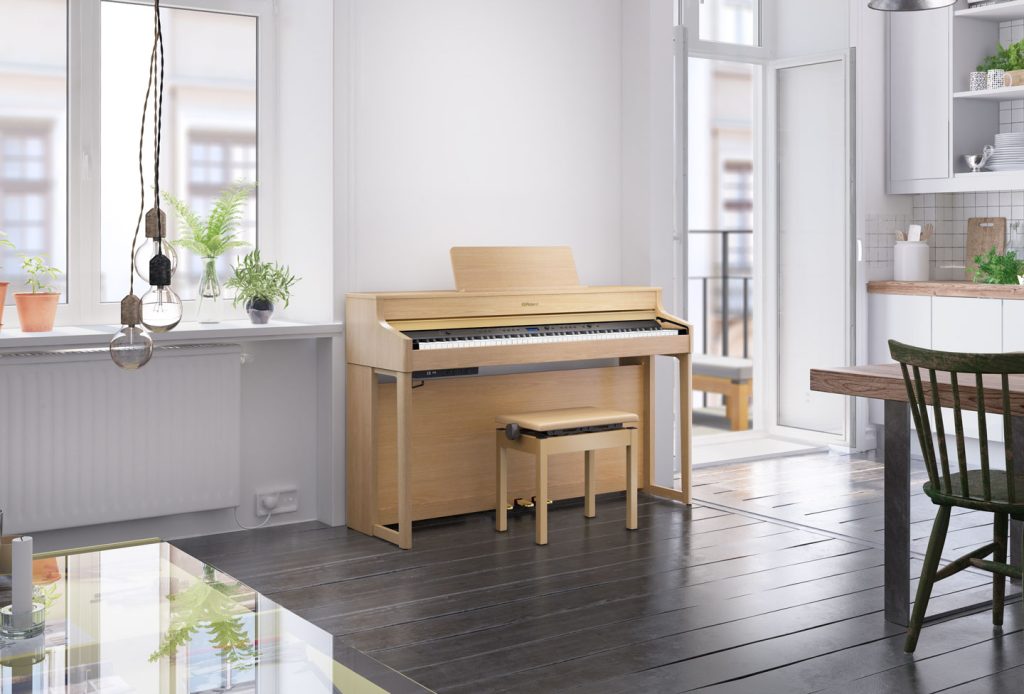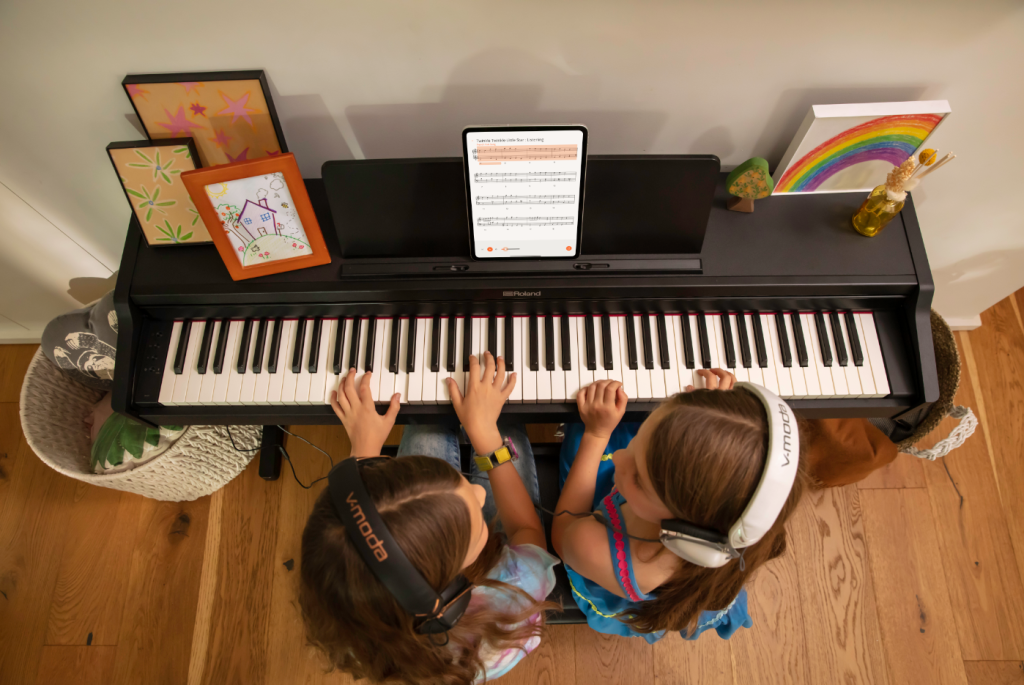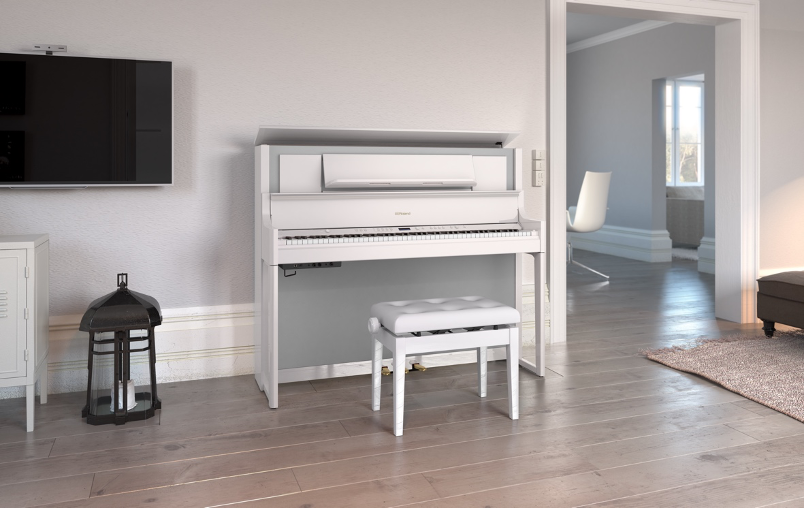Navigating your child’s first piano purchase is thrilling yet challenging for parents without musical expertise. In this guide, we tackle vital concerns, from the necessity of a full-size piano to deciphering weighted versus unweighted keys. Let’s guarantee your child’s musical journey kicks off on the right note. Here, we address common questions that parents have when buying their first piano:
Do I need a full-size piano?
When considering buying your child’s first piano, the term “full-size” typically refers to a piano, whether acoustic or digital, equipped with 88 notes. Many piano teachers recommend fully-weighted 88-key pianos because they align with the minimal requirements set by the majority of music examination boards.

Smaller keyboards, often with 61 or 76 notes and lacking weighted keys, may be suitable for beginners initially. However, as your child advances in learning piano, the limited range of notes on smaller keyboards may become a hindrance, restricting their ability to play music with high or low notes.
What's the difference between weighted and unweighted keys?
In the journey of buying your child’s first piano, understanding the distinction between weighted and unweighted keys is crucial. Weighted keys contribute to the tactile feel and nuanced response of piano playing. Acoustic piano keys are inherently heavier due to the hammer action that lifts when pressed, striking the strings to produce sound. Digital pianos with weighted keys effectively simulate the hammer action of acoustic pianos, ensuring a consistent and authentic playing experience. This consideration becomes vital for a smooth transition from digital to acoustic pianos during your child’s learning process.
Should I get a digital or acoustic piano?
As you think about purchasing your child’s first piano, one common question that may arise is whether to go for a digital or an acoustic instrument. Acoustic pianos undoubtedly offer a classic, authentic feel and sound, but it’s essential to note that they come with the regular need for tuning.
On the flip side, digital pianos come packed with modern features such as Bluetooth connectivity and compatibility with educational apps. A notable advantage of digital pianos is that they eliminate the need for maintenance. Furthermore, many high-end digital pianos impeccably replicate the aesthetic and tactile experience of acoustic pianos, providing a premium playing experience.

For a more detailed exploration of this topic and insights that may influence your decision, we invite you to check out our dedicated blog post.
Is a piano necessary, or will a keyboard suffice?
When deciding between an upright piano and a keyboard, it’s worth considering the aesthetic appeal of the former. Upright pianos come in various styles and finishes, allowing you to choose one that complements your decor. Additionally, with advancements in digital technology, you can achieve an authentic piano feel even with digital options.

On the other hand, keyboards offer a portable and space-saving alternative. If you’re concerned about the feel and sound, there are options with weighted keys and authentic piano sounds available. This flexibility makes a keyboard a potentially more budget-friendly choice, providing a practical option for those starting their musical journey.

As you embark on this musical journey with your child, consider exploring our extensive range of keyboards and pianos. We offer a diverse selection to cater to different styles, budgets, and preferences – all crafted with quality to enrich your child’s learning experience. Discover the perfect instrument that resonates with your family’s musical aspirations and sets the stage for a harmonious exploration of the world of music.

